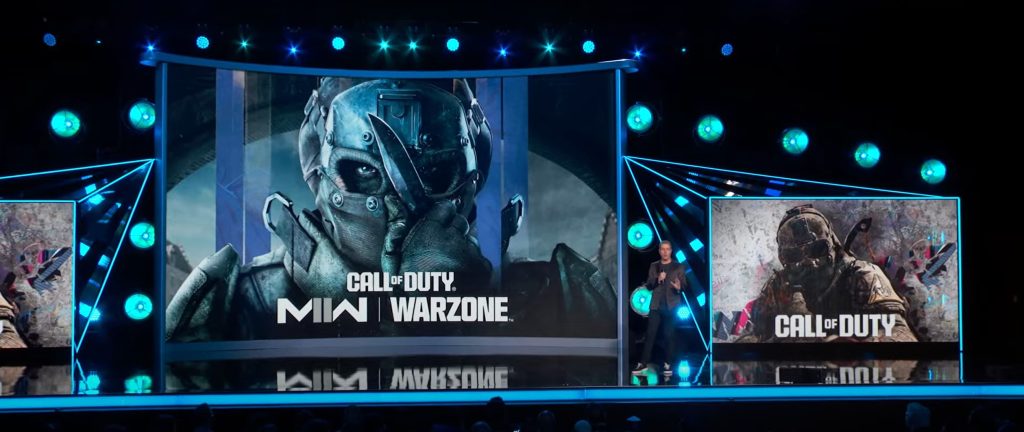
Long before its demise, E3 was an anachronism; a show for retail buyers, in an industry that had moved way beyond its bricks and mortar past. Still, inexplicable demand for a summertime Los Angeles showcase of future game releases has resulted in the tired marketing presentation called Summer Game Fest, hosted by the blandly agreeable Geoff Keighley.
This event somehow managed to encapsulate much that is wrong with gaming, and that has been wrong for a very long time. Perhaps it was inevitable that those companies willing to tether themselves to this lumbering zombie would be the ones least able to conjure much in the way of life and originality. Perhaps the attempt to deliver magic from a series of trailers is so try-hard, that it can only ever result in embarrassment for all involved.
It doesn’t help that many of these companies – and those that declined to participate – have their own showcase events, which they will inevitably wish to populate with their biggest announcements. As Rich Stanton noted on PC Gamer, Summer Game Fest “felt like publishers were offering up the side projects while keeping the real meat for their own or a platform-holder’s showcase”.
Setting aside the remakes, the sequels, the tie-ins, the celebrity crossovers and the weird sponsored segments that such events tend to vomit forth, there was the astonishing issue of representation. Incredibly, the organizers failed to put a woman on the stage.
Either they simply forgot, or they didn’t believe it mattered. Either way, it was a fuck-up that is almost impossible to comprehend. No doubt, the sniveling excuses and half-arsed apologies will be forthcoming, but for now, we must regret that, once again, gaming has failed to appreciate its own diverse appeal, or the ongoing struggle to diversify its creative ranks.
The rot goes deep. Here’s a tweet from the writer and former journalist Alanah Pearce, reacting to an IGN panel featuring four white men. Pearce wrote: “I argued with one of the men on this panel about the importance of including more women + POC in this kind of programming and he said he didn’t see the point.” That oaf ought to be fired, but I doubt he will.
Addressing the issue for Kotaku, Alyssa Mercante noted that “Keighley’s Summer Game Fest is meant to highlight the future of gaming, it felt, in this sense, like a massive step backwards.”
There were certainly some good games showcased over the dreary hours. We saw extended gameplay from spooky survival adventure Alan Wake 2, which came a month after a trailer was released. Baldur’s Gate 3 is out later this summer, and its most recent trailer offers D&D fans cause for excitement.
Prince of Persia: The Lost Crown, Final Fantasy 7: Rebirth, Lies of P, Sand Land, John Carpenter’s Toxic Commando, Sonic Superstars, Mortal Kombat 1, Lord of the Rings: Return to Moria and Star Trek: Infinite will all, I hope, offer something valuable to gaming, when they are completed and released.
The Summer Game Fest isn’t just about Keighley’s overlong trailer presentation. Other events, like Day of the Devs, are taking place. A showpiece for indie games is always welcome, especially one that yields genuinely interesting pieces like Simpler Times, Hyper Light Breaker, and Summerhill.
The fact remains that Summer Game Fest is an awkward and often boring event in which paid commercials are aired and celebrated, cloyingly. Men, many of whom are clearly not suited for stage razzle dazzle, are trotted out to mouth carefully prepared PR statements that rarely surprise, enlighten, or entertain.
For the biggest entertainment business in the world to generate something so insipid and unentertaining is a noteworthy achievement. I suspect it’s only possible because of the support of legions of professional swooners who infest social media, and who make their living by being noisily impressed by unimpressive things.
Colin Campbell has been reporting on the gaming industry for more than three decades, including for Polygon, IGN, The Guardian, Next Generation, and The Economist.
 GameDaily.biz © 2025 | All Rights Reserved.
GameDaily.biz © 2025 | All Rights Reserved.